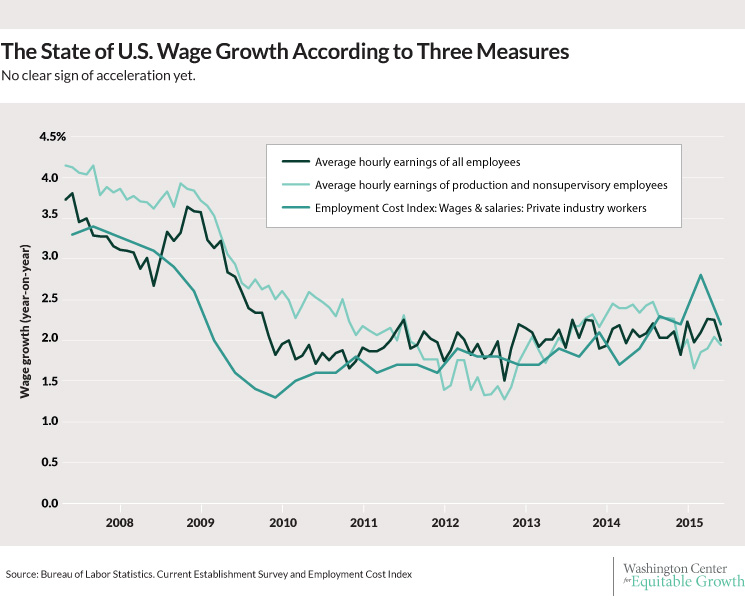Weekend reading
This is a weekly post we publish on Fridays with links to articles that touch on economic inequality and growth. The first section is a round-up of what Equitable Growth has published this week and the second is work we’re highlighting from elsewhere. We won’t be the first to share these articles, but we hope by taking a look back at the whole week, we can put them in context.
Equitable Growth round-up
Wage growth still hasn’t picked up yet in the United States.
Some cities may be eager to raise their minimum wages, but will enforcement be a problem?
While its impacts won’t be as large as the housing bubble, it’s worth looking at subprime auto loans.
A new study looks at the distribution of wealth after taxes and finds the tax code is promoting inequality.
A new regulation disclosing CEO pay ratios might not affect policy, but it should give us some interesting new data.
Links from around the web
The matter of segregation by income and race and its resulting consequences are increasing in the public conversation thanks to new research, policy action by the Department of Housing and Urban Development and a Supreme Court case. Thomas Edsall asks “where should a poor family live?” [nyt]
Corporate short-termism has also entered the public debate thanks to a proposal from Hillary Clinton’s campaign. William Galston argues that while you might disagree with her policy response, short-termism is definitely a problem for the U.S. economy. [wsj]
When industries expand, we usually would hope that there will be economies of scale where companies can produce goods or services more cheaply as they get bigger. Unfortunately the historical evidence shows the exact opposite happening in the finance industry, according to Timothy Taylor. [conversable economist]
On average women earn less than men. But in certain industries that’s not true when workers are young; women actually make more than men, on average. But as Ylan Mui writes, that changes as workers age. [wonkblog]
After almost 7 years of zero interest rates and unconventional monetary policy, some economists and policy makers are concerned about the effectiveness of monetary policy. A U.K. politician’s proposal to have the Bank of England directly finance infrastructure investments is drawing ire and Matthew Klein isn’t sure why. [ft alphaville]
Friday figure

Figure from “Wage growth and the health of the U.S. labor market” by Nick Bunker
